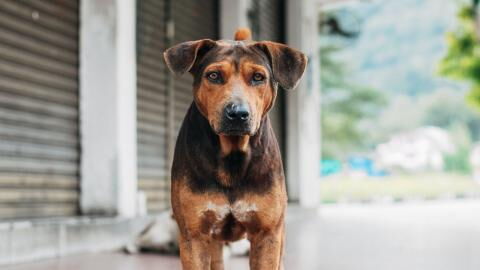Drool is commonly seen in certain breeds of dog such as Mastiff and the Bloodhound. Some dogs could also drool when anticipating something delicious, or it could be in reaction to the taste of something they find unpleasant. If your dog is not a slobberer, there could be other reasons - serious or minor - why they are drooling.
Discover our latest podcast
When to worry
Just as is the case among humans, saliva is useful for digestion as it helps lubricate food, making swallowing possible. In dogs, a certain amount of drooling is normal, however, dental issues, anxiety and nausea can make drooling worse in your canine companion. According to the American Kennel Club:
A foreign body can lead to slobbering. Anything caught between your dog’s teeth or lodged in his throat, such as a sliver of bone, could be a potentially serious problem.
Pets Radar highlights other factors responsible for excessive drooling in dogs including:
- Heatstroke
- Organ disease (kidney, liver)
- Neurological issues
- Eating an irritant

Bloating and drooling
Another common, but potentially serious incidence that could cause your dog to drool excessively is bloating. Large breed dogs are more susceptible to bloating and a serious condition known as gastric dilation-volvulus or twisting of the stomach. Veterinary surgeon, Rebecca MacMillan explains:
This (bloating) is an emergency. Your dog may be drooling as they are trying to vomit unsuccessfully with a bloated sore abdomen, and in extremes, they could collapse.
It is advisable to pay attention to any changes in appetite or behaviour, neurological symptoms like seizures or difficulty standing. Dr MacMillan adds:
If your dog seems out of sorts and is showing any symptoms as well as excessive drooling, such as vomiting, smelly breath, or changes in appetite, you must take him to the vet. If you are worried about your pet, it is always better to be safe than sorry.
Read more:
⋙ Heatstroke: Here are the signs your dog may be experiencing overheating
⋙ Should your dog go vegan? New study suggests plant-based diets are healthier for dogs
⋙ Study shows women sleep better next to dogs than their partners















